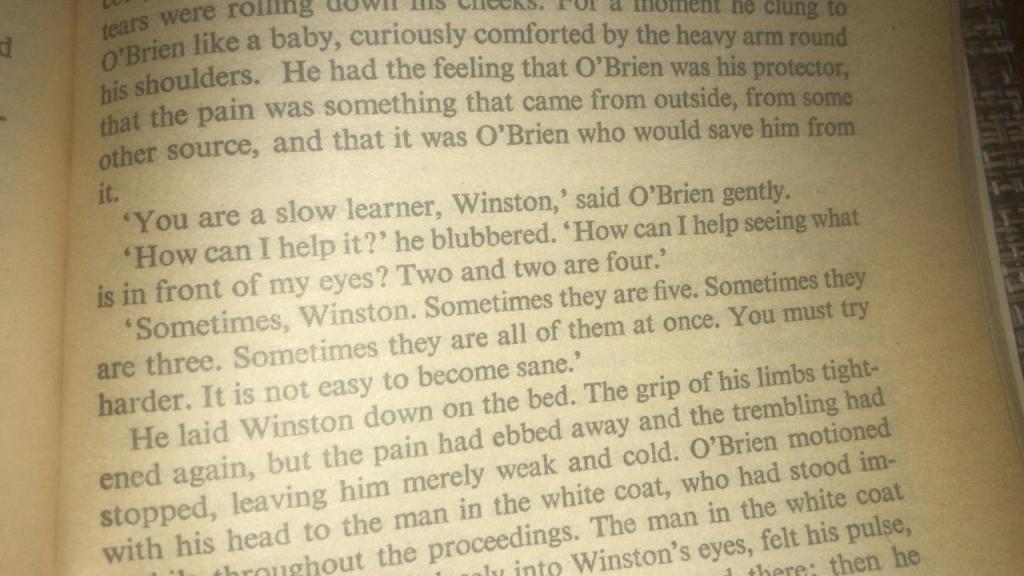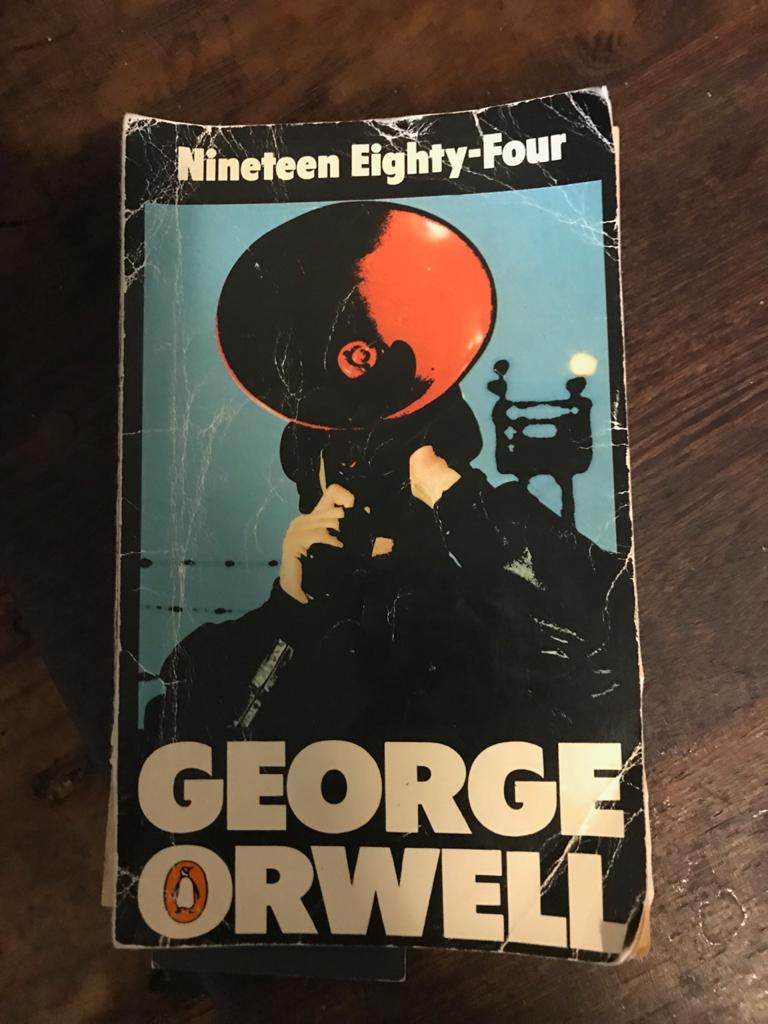In Nineteen Eighty Four, the hapless protagonist Winston finds the powers-that-be’s demands for intellectual obedience increasingly oppressive, to the point that his cognitive grip on reality becomes tenuous. Does two plus two even equal four anymore?
O’Brien, the power-lusting antagonist, explains patiently:
“Sometimes, Winston. Sometimes they are five. Sometimes they are three. Sometimes they are all of them at once.”
The issue is compliance, not truth.


Yes, 2 + 2 does equal five. Below is proof.
Usually, since we have been schooled that when summing two numbers we are to start at the origin, which is also called by the number zero, we see the first number two as +2. This means that we are to move in a positive direction from that origin of zero. The result is two. Then, we are to continue the process by adding another, or the second, two. The result will be four or +4. But what if the origin is not zero but it is the first mumber that comes to any pre-schooler, one or 1. Now, summing the first two not with the origin of zero but with the origin of one brings a result of three and, going further, when the second number two is added into the equation we sum it with three to arrive at the conclusion of five.
Thus 2 + 2 = 5.
Nice piece of party-trick sophistry. You have to ask what the number line represents. So if at the “origin,” as you put it, you have zero and twice add two then the number line properly shows the result of 0 + 2 + 2. And if at the origin you’re assuming you already have one, then the number line properly shows the result of 1 + 2 + 2.
Dumbass, 1+2+2=5
YES, 2 + 2 = 5 IDIOTS
2+2=4 count your fingers